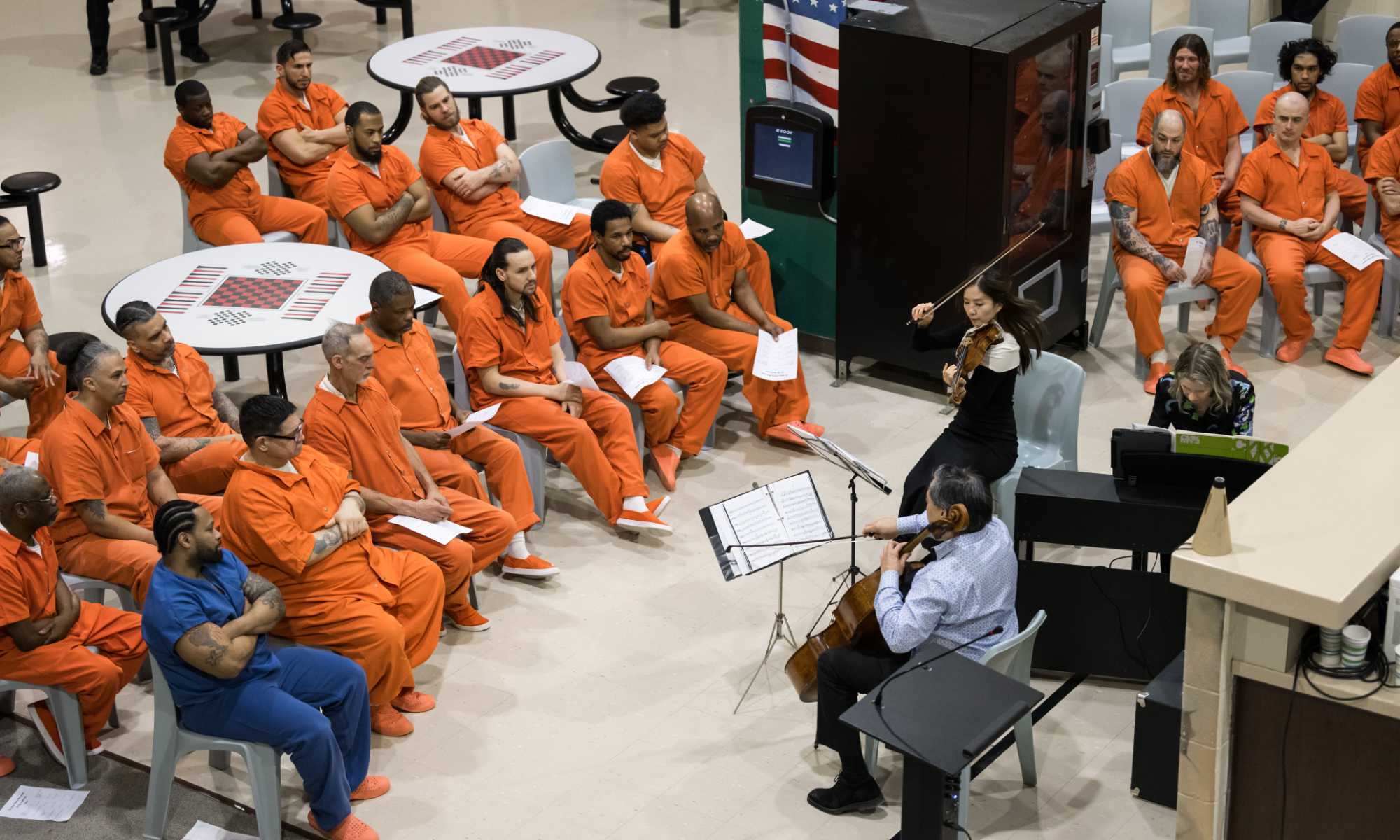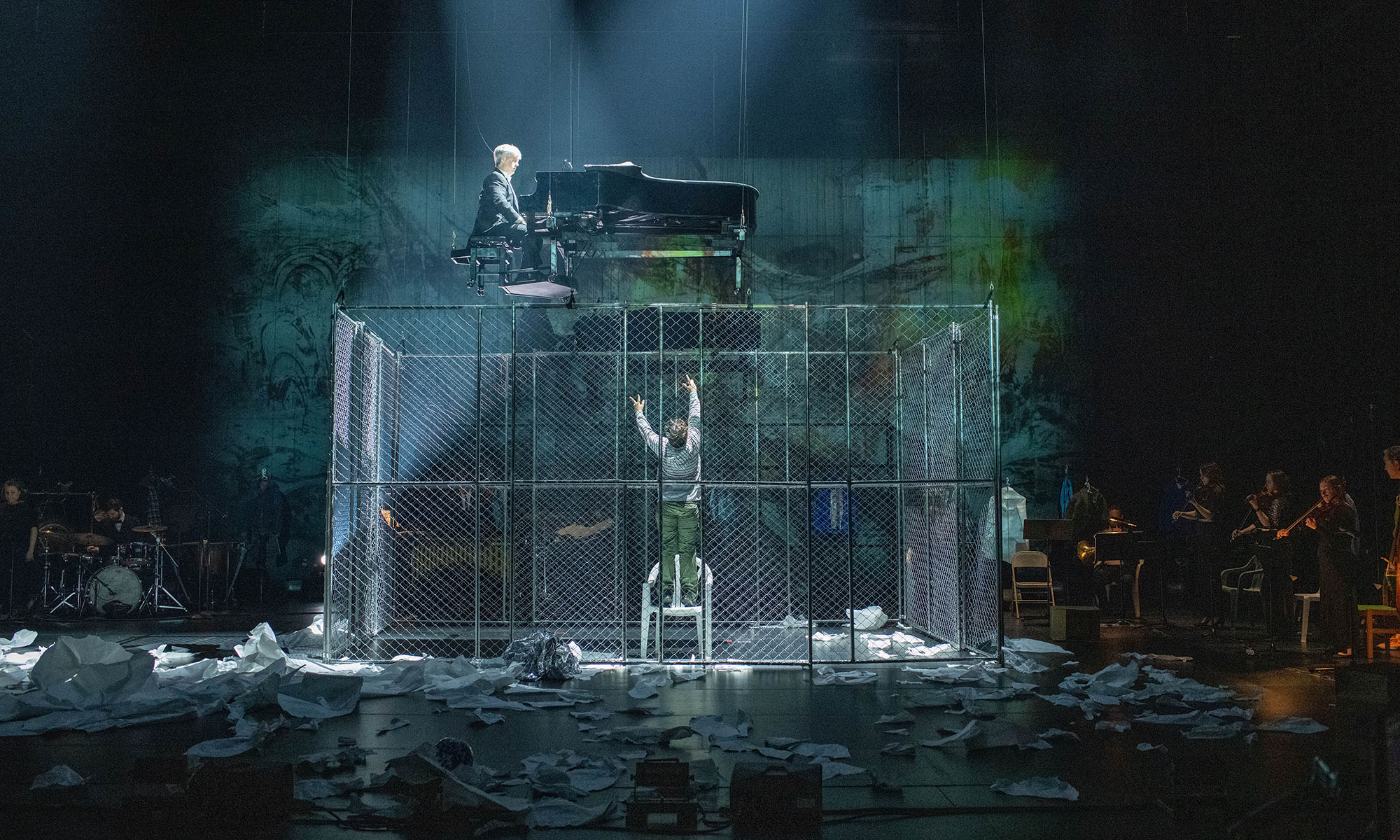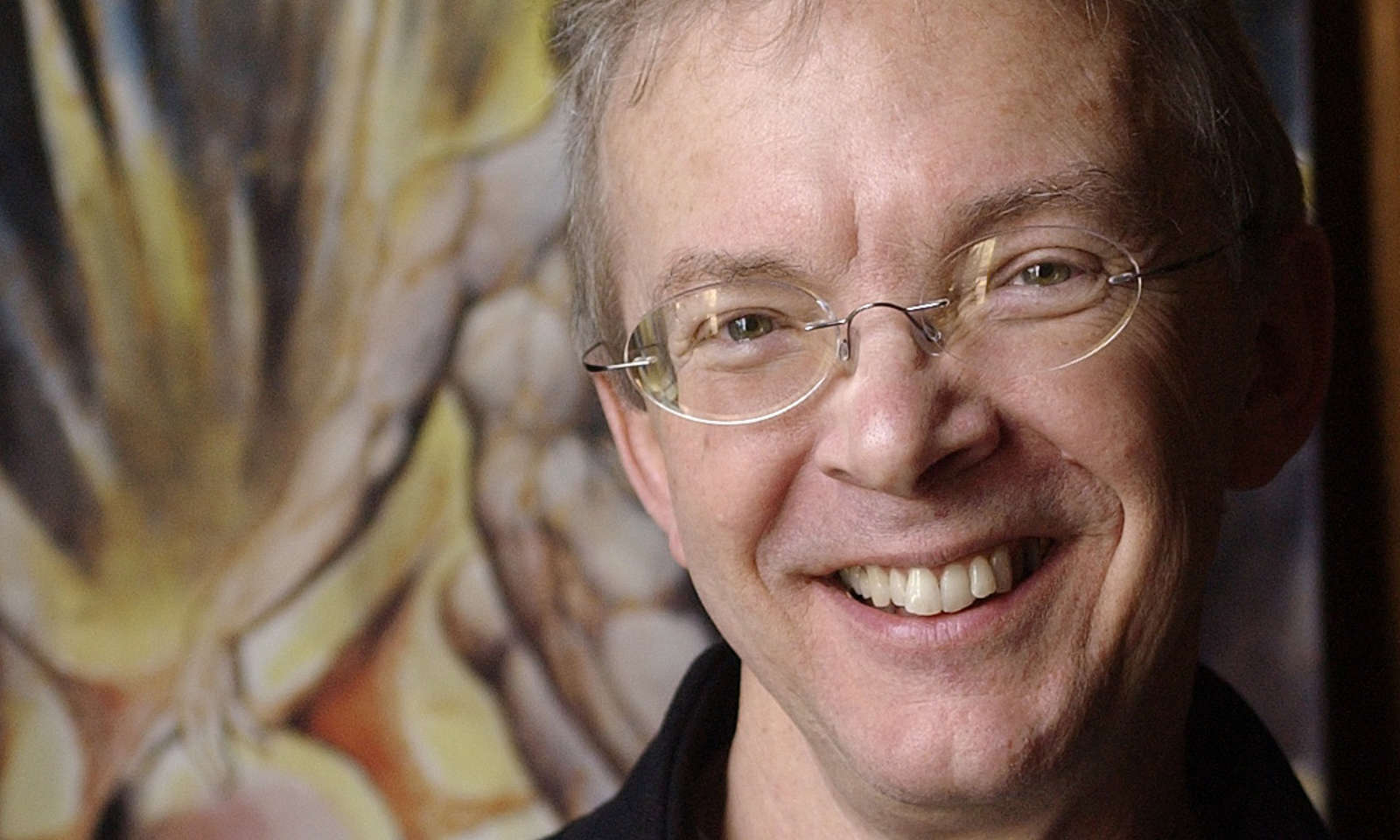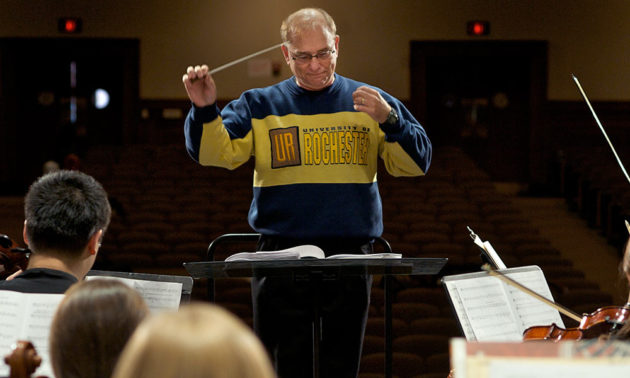
“Students who come here want to have music in their lives,” says David Harman.
There’s a light that shines in his eyes when he talks about the musicians he’s taught at the University of Rochester for more than 24 years. The longtime faculty member in the College’s music department—and champion for its programs—will retire as director of orchestral activities at the close of the spring semester. On Thursday evening at the Eastman Theatre’s Kodak Hall, the University of Rochester Symphony Orchestra will present a concert in his honor.
A Northern California native, Harman first came to Rochester as a student, earning a doctor of musical arts degree from the Eastman School of Music in 1974. A clarinetist, Harman enjoyed a distinguished performance and conducting career throughout the United States and abroad for nearly 20 years before he decided in 1993 to continue that career back in Rochester.
Kodak Hall at Eastman Theatre
Thursday, April 13, 2017
6:30 to 8:00 p.m.
In honor of Dr. David Harman
Overture to the Impresario Mozart
Symphony No. 1 Mahler
Free and open to the public
In the years since, he’s sealed his legacy as a faculty member in the College’s music department, director of the University’s Symphony Orchestra and Chamber Orchestra, and musical director and conductor of the Rochester Philharmonic Youth Orchestra and the Penfield Symphony Orchestra. In 2005, he received the Richard H. Snook Award from the Monroe County School Music Association for his contributions to music education, and in 2008 he was named Musician of the Year by the Rochester Chapter of the Mu Phi Epsilon in recognition of his contributions to the musical life of the Rochester community.
“The arts are essential,” says Harman. “Everything that we can do in education to support that is worthwhile.”
As an educator, he’s been a valuable mentor for a unique and possibly underserved group: musicians who aspire to perform at an exceptionally high level, but not as professionals. Harman understands this group, and what its members can accomplish as individuals as well as together.
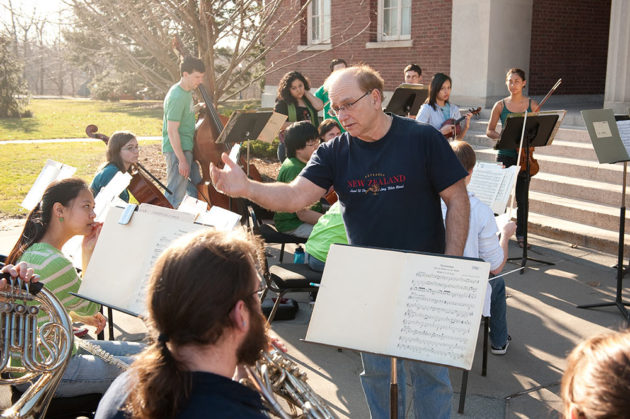
These musicians include people like Greg Savich ’06, ’15 (PhD), who stayed at Rochester to earn a doctorate in optics, but came to the University in the first place because of its music program. “I was on the fence on whether I wanted to be a scientist or a musician,” says Savich, who first picked up the French horn while he was in grade school. The College’s music program allowed students to excel in music without having to major in the field.
The Chamber Orchestra and the Symphony Orchestra, for example, are two ensembles on the River Campus, both led by Harman, that require auditions. The Symphony Orchestra includes undergraduate and graduate students as well as musicians from the Greater Rochester community. Often these community members, who have to audition to join the ensemble, include faculty members and graduates of the Eastman School.
Harman says teaching is about providing experiences that are appropriate for each student. “None of these people [at the University] has to play here. We have to challenge the physics major that is such a good violinist, that he could have gone to the Eastman School, if he felt like he wanted to,” he says.
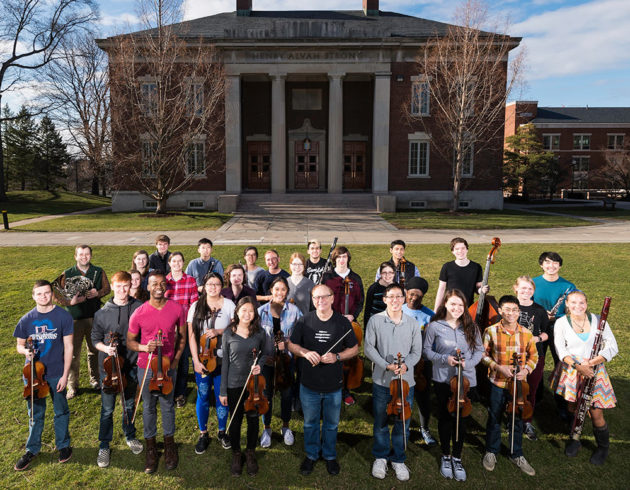
Among those who have become professionals, his students have included the likes of Ward Stare, who now serves as the musical director of the Rochester Philharmonic Orchestra and will be conducting at the Metropolitan Opera in December, as well as many K–12 music educators. Teaching music in schools “is equally as important [as performing in an orchestra] for spreading the good word about what music does for people,” he says.
Harman is not completely retiring. Besides a little meditative fly fishing, he will continue to conduct the Penfield Symphony. There he will continue to challenge musicians to achieve a high level of performance—“to provide musical challenges and opportunities that will bring out the best in them.
“I find that the better the musician gets, the better the human qualities become—both in terms of their own individual qualities and how they work together with others. A musical organization is about team work, just as much as a sports organization is.”

